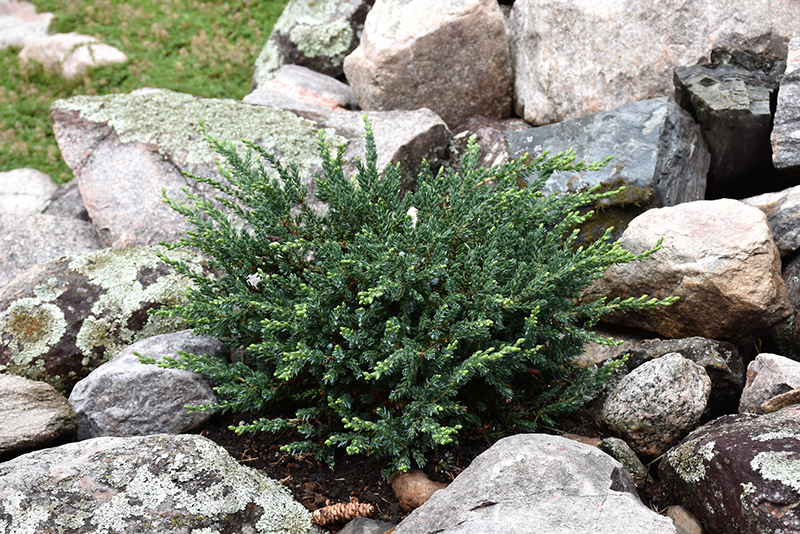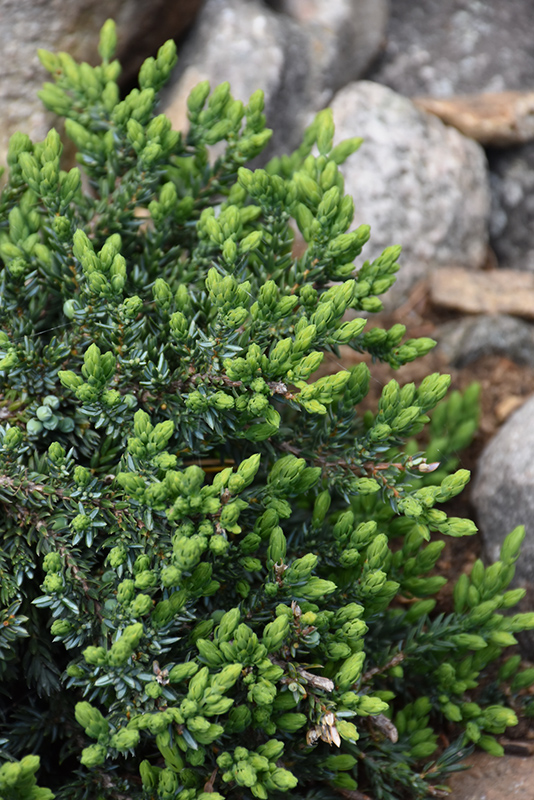Plant Library
Spreading Common Juniper
Juniperus communis 'var. montana'
Height: 8 inches
Spread: 3 feet
Sunlight:
![]()
Hardiness Zone: 1b
Other Names: Juniperus communis var. saxatilis
Description:
An extremely slow growing and prostrate version of the species found in mountainous areas, height can range from a few inches to a foot; delicate sprays arch for a wonderful effect, a true gem for a rock or alpine garden
Ornamental Features
Spreading Common Juniper is a dwarf conifer which is primarily valued in the garden for its broadly spreading habit of growth. It has attractive grayish green foliage with silver stripes. The needles are highly ornamental and turn coppery-bronze in the fall, which persists throughout the winter. It produces blue berries from late spring to late winter.
Landscape Attributes
Spreading Common Juniper is a multi-stemmed evergreen shrub with a ground-hugging habit of growth. It lends an extremely fine and delicate texture to the landscape composition which should be used to full effect.
This is a relatively low maintenance shrub, and is best pruned in late winter once the threat of extreme cold has passed. It has no significant negative characteristics.
Spreading Common Juniper is recommended for the following landscape applications;
- Mass Planting
- Rock/Alpine Gardens
- Border Edging
- General Garden Use
- Groundcover
Planting & Growing
Spreading Common Juniper will grow to be about 8 inches tall at maturity, with a spread of 3 feet. It tends to fill out right to the ground and therefore doesn't necessarily require facer plants in front. It grows at a slow rate, and under ideal conditions can be expected to live for approximately 30 years.
This shrub should only be grown in full sunlight. It is very adaptable to both dry and moist growing conditions, but will not tolerate any standing water. It is considered to be drought-tolerant, and thus makes an ideal choice for a low-water garden or xeriscape application. It is not particular as to soil type or pH. It is highly tolerant of urban pollution and will even thrive in inner city environments. This is a selection of a native North American species.






